In a county once marked by community violence, where numerous youths were promised a better future in exchange for causing mayhem, Marsabit County has achieved a state of peace over the years. However, unemployment, the lack of economic opportunities and drug abuse continue to leave many youths vulnerable, disillusioned, and susceptible to the incentives and manipulation associated with criminal behavior and violence.
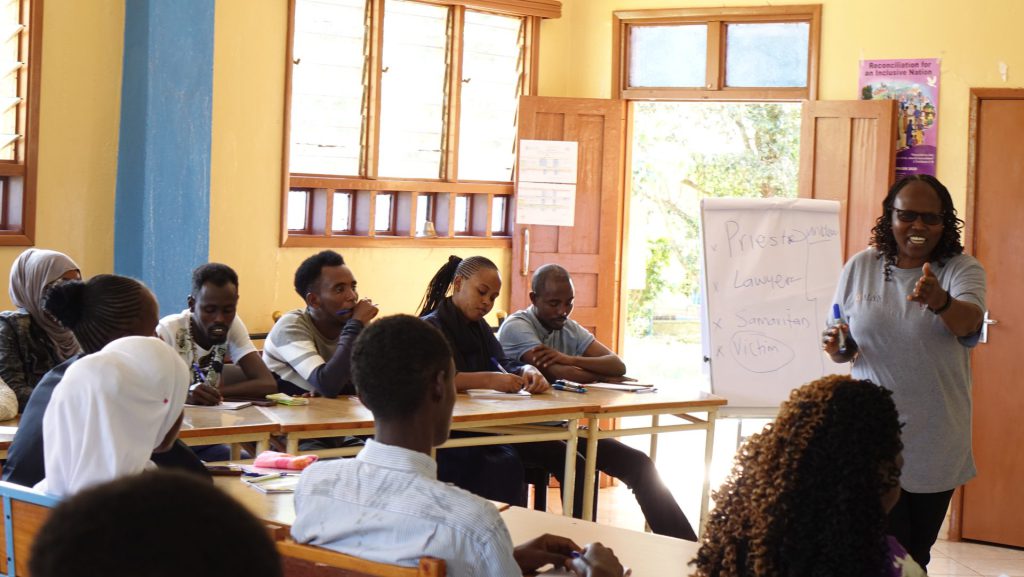
To address the challenges faced by the youth in Marsabit County, the African Jesuit AIDS Network (AJAN) initiated a 5-day Training of Trainers on the AJAN HIV and AIDS Prevention Program for Youth (AHAPPY) that took place from the 3rd to 7th of June 2024. In collaboration with the Youth Chaplaincy Officer, Catholic Diocese of Marsabit (DOM) AJAN identified holistic development, conflict resolution, skills development and social economic empowerment as crucial elements in building the capacity of the target groups. This training aimed to help the youth realize and appreciate their potential, while also instilling value-based practices that can sustainably transform their lives.
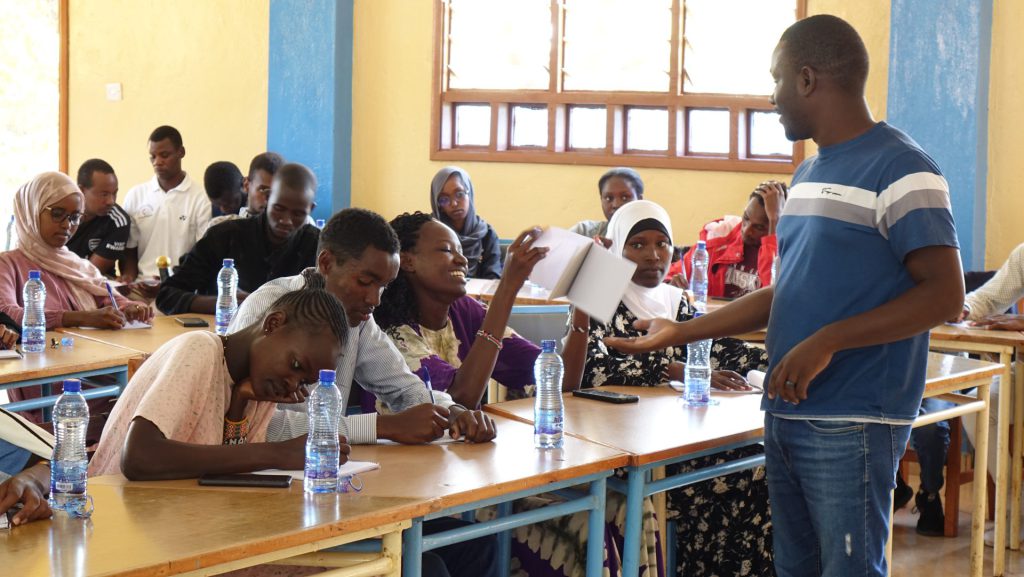
In view of this realization, while the general aim of the AHAPPY program is to reduce vulnerability and contraction of HIV by the Youth, the facilitators took their time to engage the youth on topics of self-awareness strengthen them to take responsibility of their own lives through making informed decisions such as sexual abstinence and use of ARV drugs for those who may be already infected besides being agents of positive change. Encourage the youth to take up social entrepreneurship, where they were challenged to be problem solvers. A total of 35 participants coming from different deaneries and parishes attended the training which focused on awareness, self-realization and recognition, educating and providing them with life skills, abilities in critical thinking and correct values; so that they are able to realize their potential through positive attitude change and skills, to identify and take advantage of the opportunities in their community and surroundings.
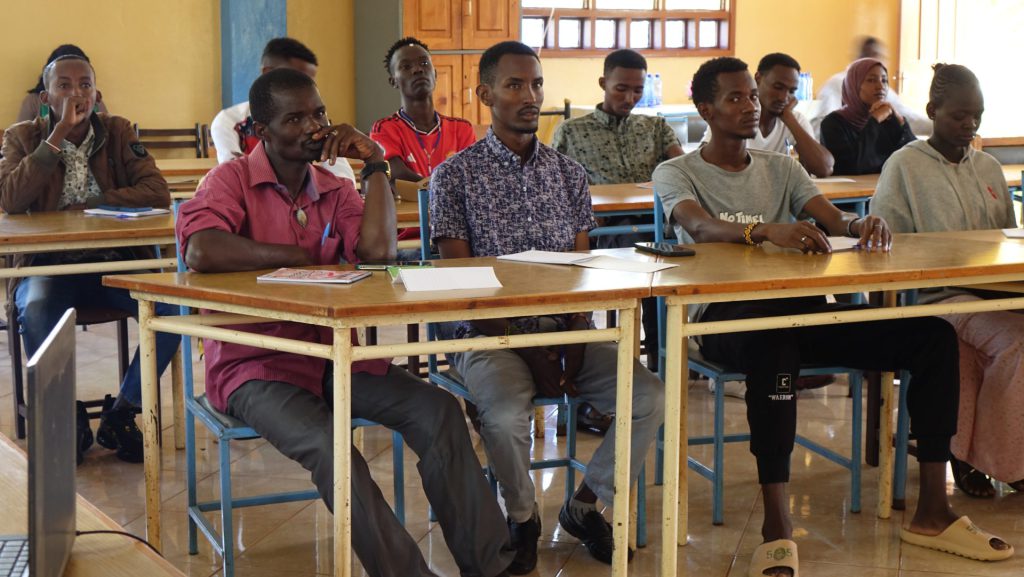
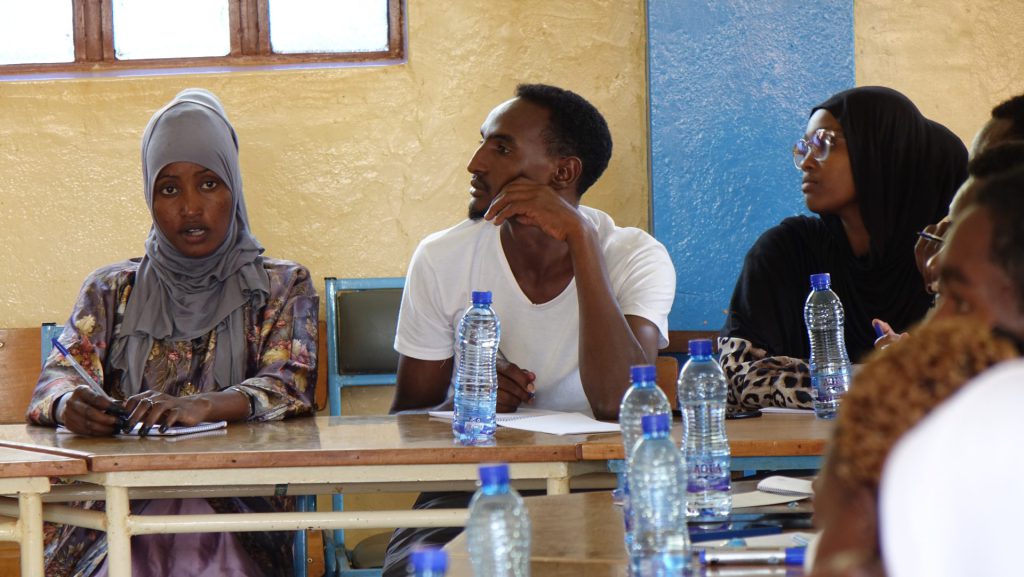
Mr. Pardington, during AHAPPY ToT Session as the youth follow up with the training at Marsabit, Kenya.
During a meeting between AJAN Representatives Ms. Pascalia Sergon, Mr. Dennis Owuoche, Fr. Fasil Kebede, Youth Chaplain and Rt. Rev. Peter Kihara Kariuki, Bishop of the Catholic Diocese of Marsabit, the Bishop expressed his support for the AHAPPY program, saying, “I commend AJAN’s efforts in promoting holistic development among the youth and through this initiative of fostering positive change within the community in Marsabit which has faced a lot of challenges ranging from communal conflict, we have worked hard to have the communities here live in peace and I hope the youth that took part in the training will take this message back to their respective parishes, but even as we train the young people we hope the AHAPPY program can also be offered to the rest of the congregants; this are the leaders (both women and men) in the church and the Catechists, because this is where they stay, this is where they call home, compared to the young people who will later on graduate to other church groups as they grow and find new green pastures, the older generation will be more responsible in ensuring we have a new generation of the young who are well rounded. Our plea is that AJAN will keep coming up back to offer this training every year to ensure the program is sustained and expanded to every parish in the Diocese of Marsabit. We are inviting you to celebrate and be part of our story during this 60th Anniversary celebration taking place in November 2023 at the Consolata Cathedral in Marsabit Town.”
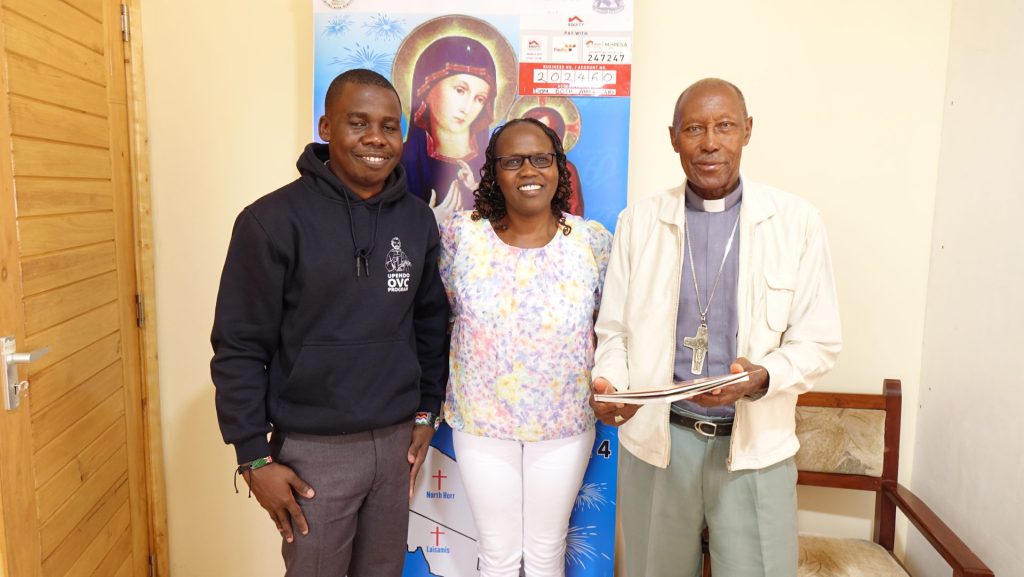
At the end of the training, several participants shared positive feedback, expressing their appreciation for the valuable insights and practical skills they gained. They highlighted how the program exceeded their expectations and equipped them with the knowledge necessary in molding their behaviors and fellow youths. Below are their enthusiastic responses which underscored the training’s impact and effectiveness, reinforcing the importance of continued learning and holistic development.
According to Teresa Tunne Huqa a youth leader from Our lady of Consolata Cathedral Parish, Marsabit,
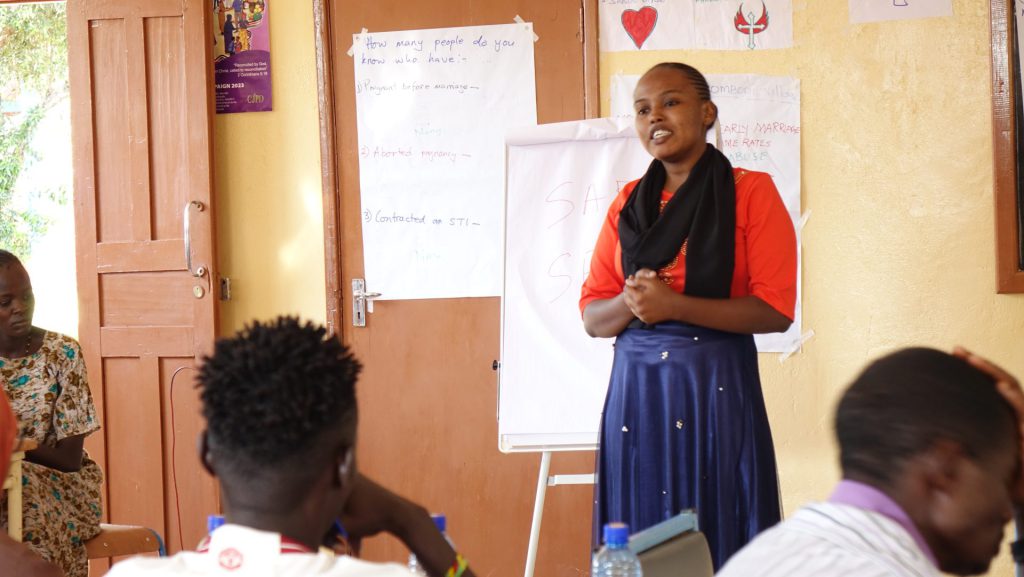
“The AHAPPY training was very informative, what resonated with me is the understanding that us as the Human being we have the body, soul and spirit. The body is just an avatar, the soul is eternal and the spirit rules the body. What made the training more effective is the use of group discussions, this enabled us as participants to exchange ideas and get life experiences from different people as all of us came from different places. Some of the life experiences were problems that the youths in Marsabit are facing, they include early marriages, unemployment and drug abuse. I believe through this training we as youths should be at the forefront of finding solutions to the problems. For a problem such as unemployment, as a trainer I am going to challenge my fellow youths to use their wits, talents and skills for them to get a job. From here I intend to use the knowledge gained to listen to the problems that my community is facing, teaching them through holding more of such seminars and being a role model to my fellow youths. My advice to all the young people is that there is something you can do to bring about change at a personal level, so it starts with me and you then to the community.”
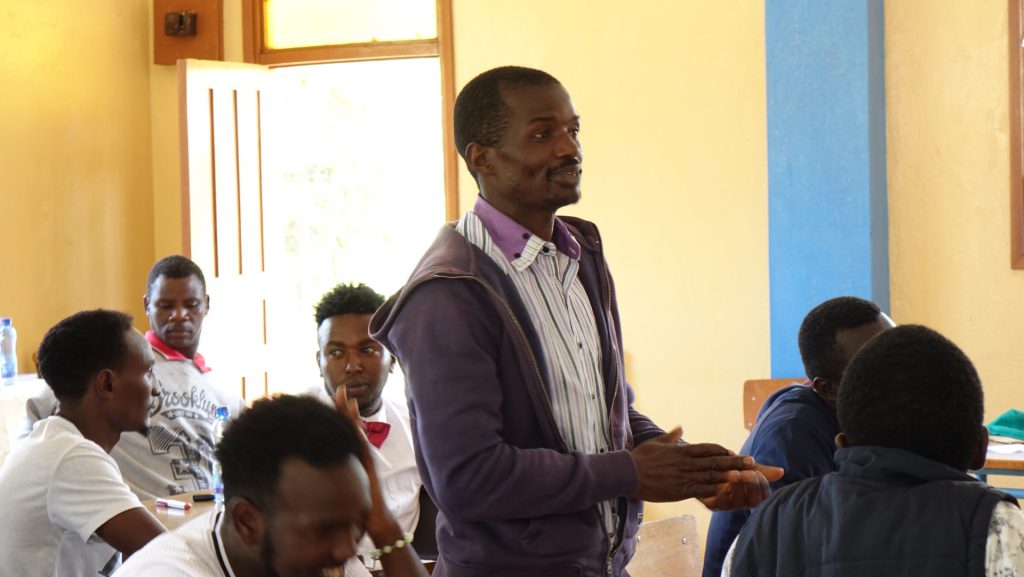
Fredrick Ochieng a participant at the AHAPPY Training says,
“The training was a success covering issues about HIV and drugs. I am working with NACADA as a civil educator here in Marsabit, am championing the young people against drug abuse, it is very unfortunate that I lost my brother through drugs and that is really what is pushing me to ensure that I don’t lose either of my colleagues and fellow youths to drugs. Drug abuse is one of the key problems to economic prosperity family growth and is also a contributor to the rise of HIV infection. As the youths indulge in drugs, they get to engage in premarital sex without even knowing their status, this is negatively impacting the community, therefore for us to succeed in this fight the youth need support and accompaniment from such programs such as AHAPPY where they can attend trainings or seminars. The topic on self-awareness is quite effective in this fight where youths are challenged to discover their talents and assist their community. I challenge the youths to go and take the HIV test, get to know their status, but most of all to chill (abstain) as the right time will come when they can have sex that is only when they are married but above all, the youths still need guidance from the parents, the elderly more so from the church and government. From this training I am seeing myself as a tree that has been planted to produce fruits by going out to carry out more training, to sacrifice our lives so that we can save each other.”
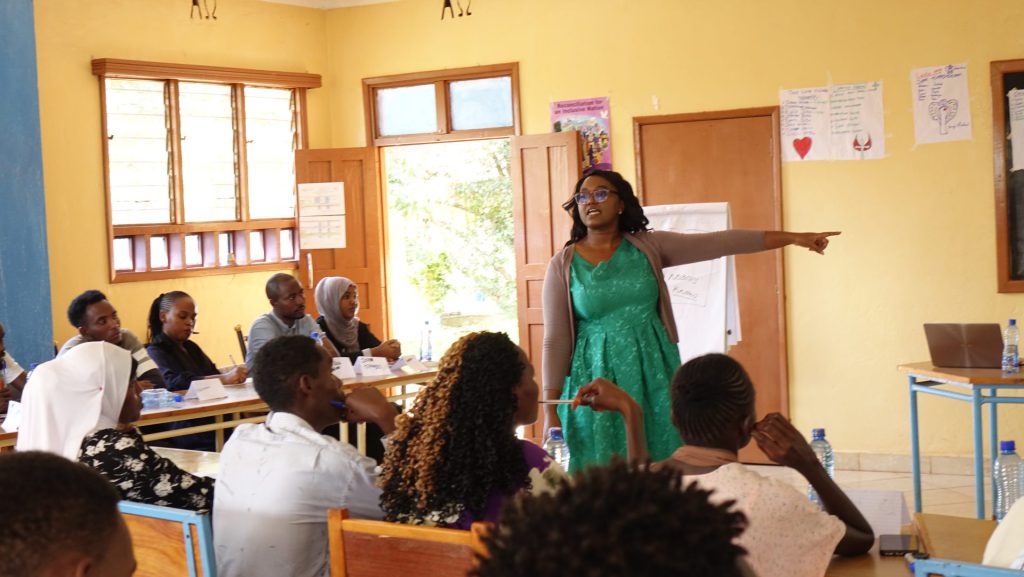
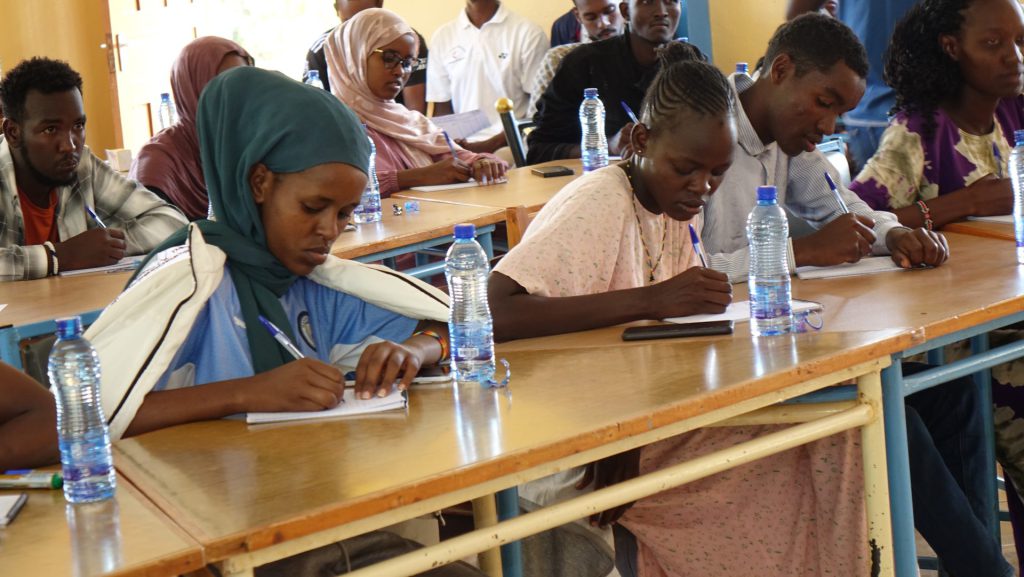
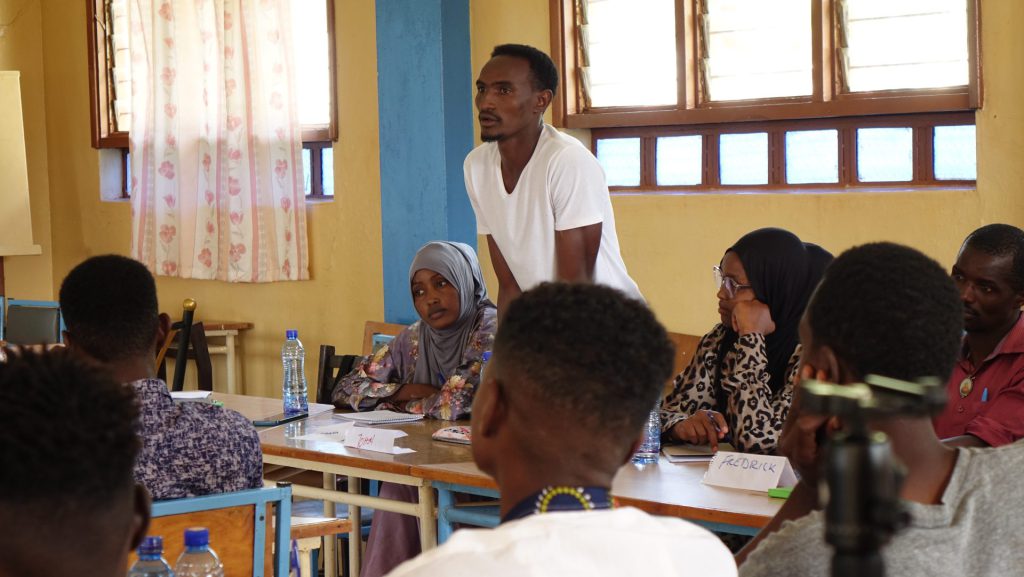
Ms. Mary Wanjugu, during AHAPPY ToT Session with the youth at Marsabit, Kenya
At the end of the five-day training, the youths received certificates in recognition of their dedication and active participation. This achievement marks a significant step in their journey, empowering them to apply their newfound knowledge and skills in their communities just as Teresa and Fredrick have highlighted in their testimonials above.
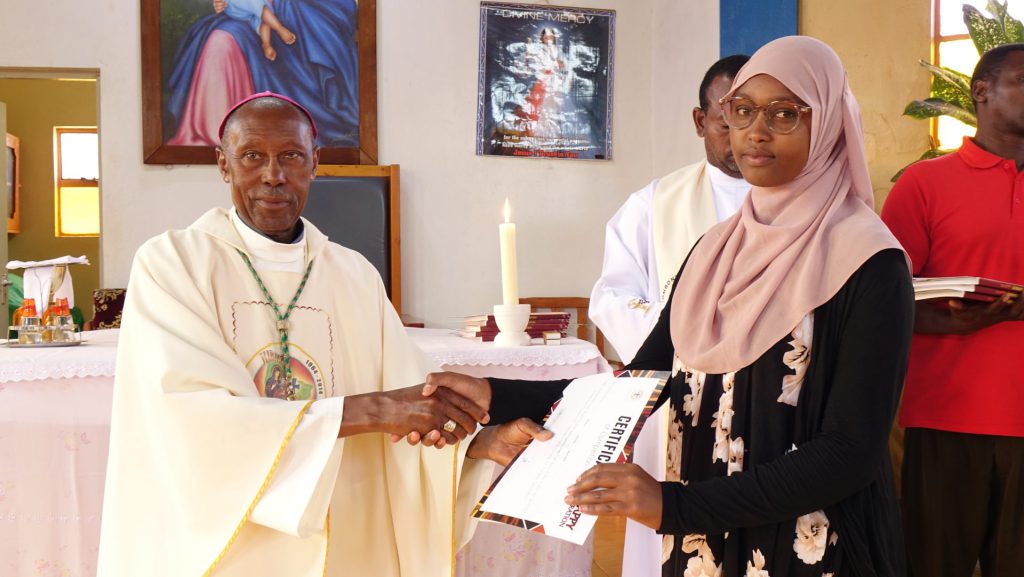
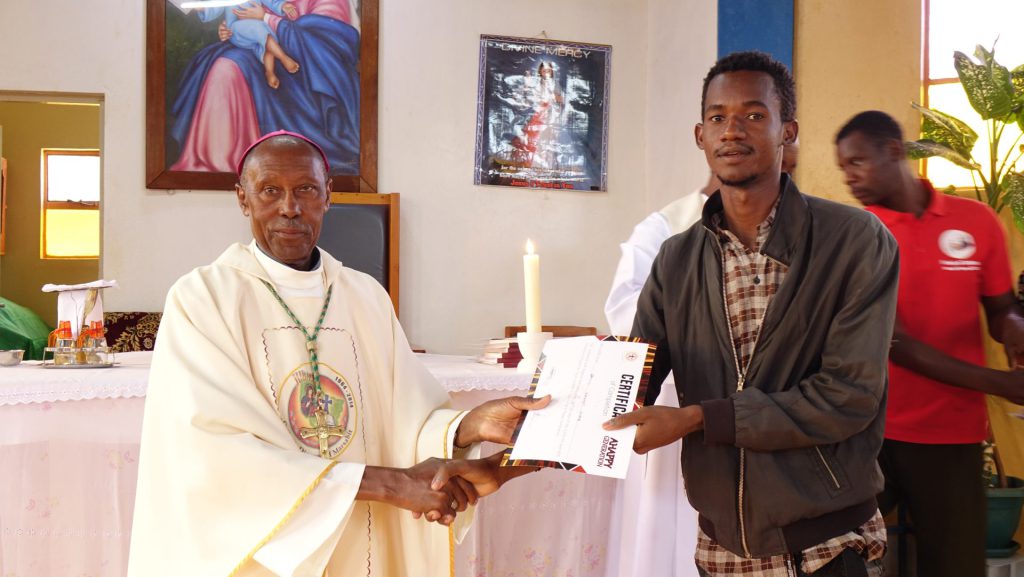
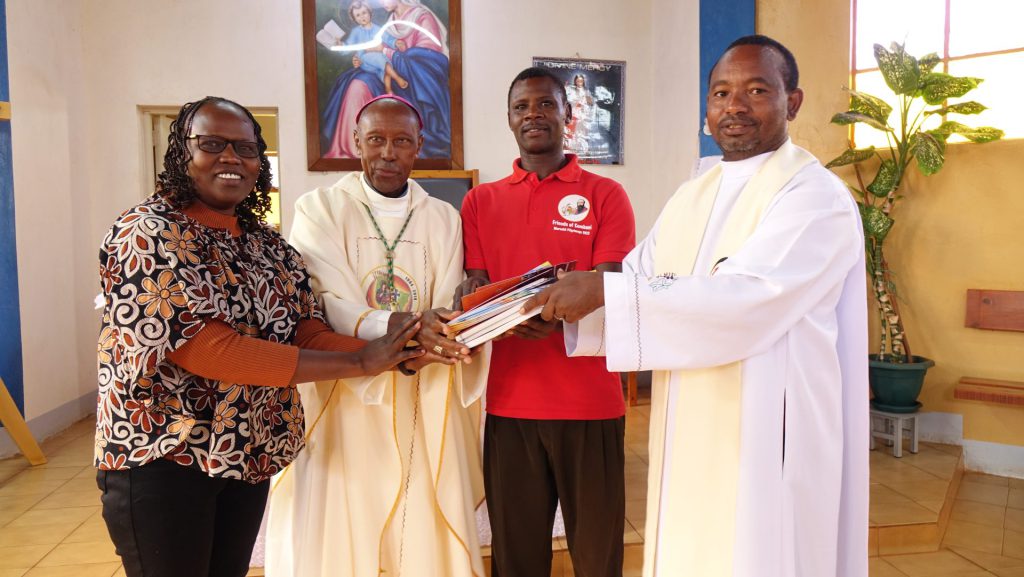
Ms. Pascalia Sergon, AJAN Development Officer, Rev. Peter Kihara Kariuki, Bishop of the Catholic Diocese of Marsabit, Mr. Stephen, Catechist and Fr. Fasil Kebede, Youth Chaplain, Catholic Diocese of Marsabit.
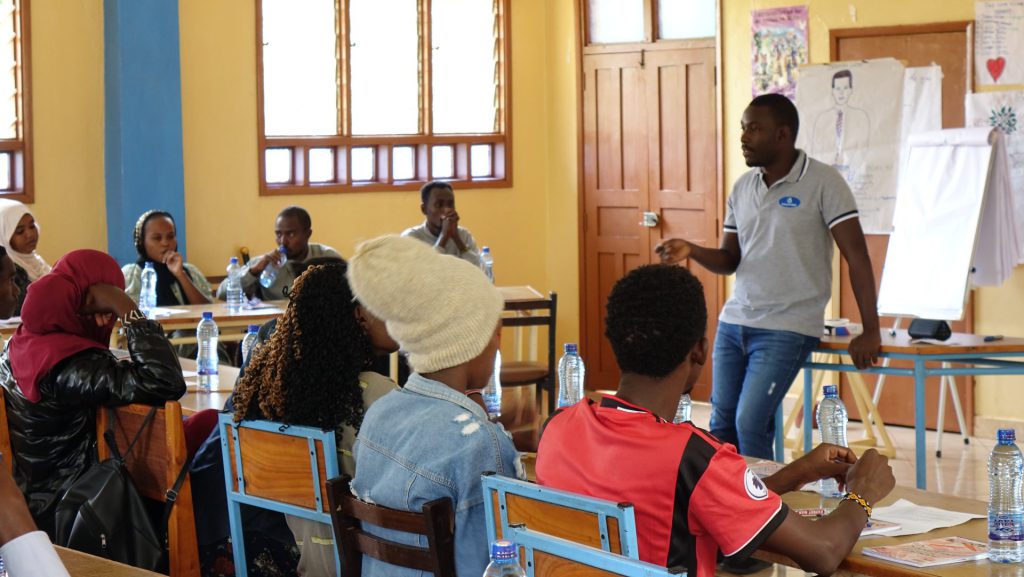
To conclude, here’s feedback from one of the facilitators of the AHAPPY Training of Trainers in Marsabit, Mr. Pardingtone Nhundu, Pan African Coordinator for the International Movement of Catholic Students, shared his insights and experiences from the program.
“The five days of the AHAPPY training in for the Youth leaders form the Catholic Diocese of Marsabit was good. We had a unique experience because we had 3 to 4 tribes of the Young People united together in one identity which is being part of the Catholic church, the young leaders had different expectations of what they wanted to learn and am happy to say that the AJAN team managed to tackle more of those expectations to make sure that the young people have got the skills to become the trainers that we anticipate them to be as they go forward as a diocese. The young people showed that they have the zeal and huge interest to participate in the community issues, those that have to deal with the church open to learning and re-learning. That gives us the church a big opportunity of capacity building in terms of giving resources to young people, to build on these skills and to go forward. In conclusion is that this training of trainers particularly of this young people are key resource should be rolled out to more and more dioceses and to more young leaders in the Catholic church and also as the community and the church around them, we have the responsibility to nurture the young people and give them the resources they need and information they want so that they can carry on with the conversation and undertake this training back at their parishes.”
By, Dennis Owuoche
AJAN Communications Officer.

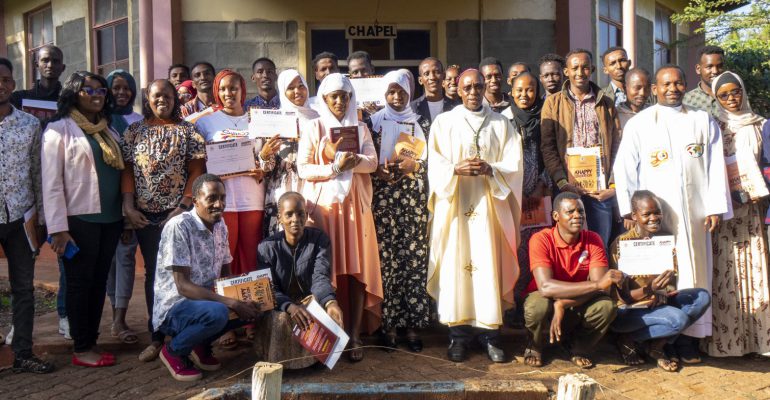
Comments are closed.